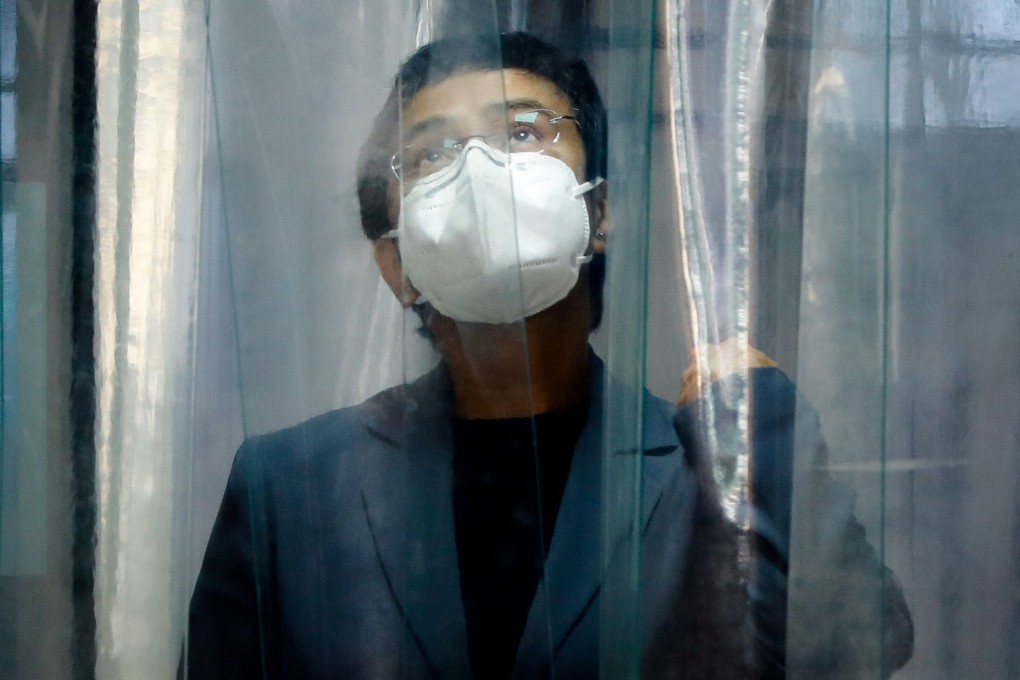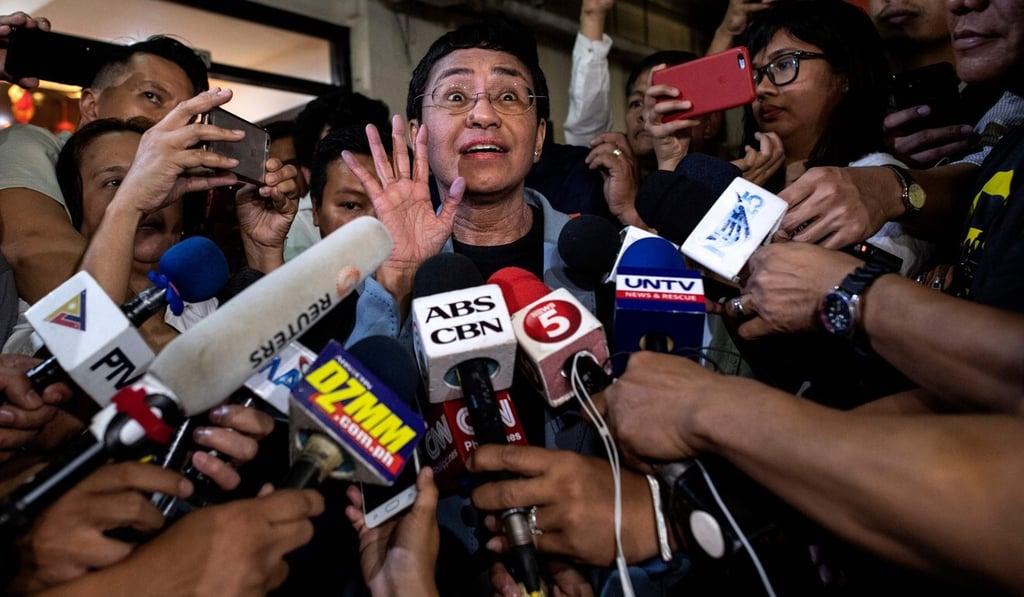Editorial | Philippine journalist Maria Ressa must be allowed fair appeal for sake of press freedom
- Editor who irritated Rodrigo Duterte and his allies faces up to six years in jail in a country where media organisations are coming under increasing pressure

Some extraordinary twists and turns of legal process led to the conviction of prominent Philippine journalist Maria Ressa and former researcher-writer Reynaldo Santos Jnr for cyber libel. The online article in question was first posted in 2012 on Ressa’s news site Rappler and reposted to correct a typographical error in 2014.
Businessman Wilfredo Keng filed a cyber libel complaint in 2017 over the article about a supposed questionable relationship with impeached chief justice Renato Corona. The National Bureau of Investigation cybercrime division threw it out, citing the one-year prescription period as provided in the revised penal code.
A year later the Department of Justice ruled that liability for cyber libel could extend to 12 years and filed charges under two acts. One was the Cybercrime Prevention Act of 2012, which was enacted four months after the article was first posted.
Ressa has appealed against her conviction and sentence of between six months and six years in jail. Bail has been extended. “We are a cautionary tale,” Ressa said rightly of her conviction.

Legal aspects aside, Ressa’s prosecution, along with the closure of television station ABS-CBN, has been linked with reporting of controversial issues such as President Rodrigo Duterte’s war on drugs and the handling of the Covid-19 contagion. The coverage by Rappler and other news organisations has at times irritated Duterte and his allies.
